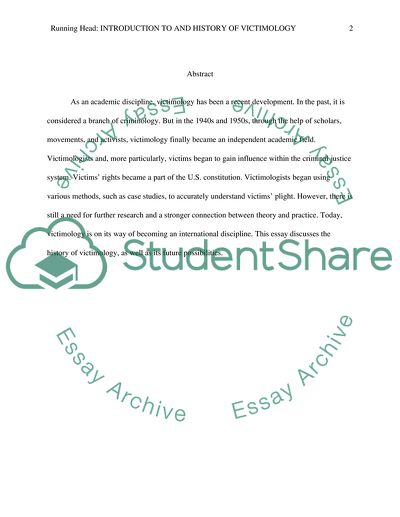Cite this document
(History of Victimology Term Paper Example | Topics and Well Written Essays - 1500 words, n.d.)
History of Victimology Term Paper Example | Topics and Well Written Essays - 1500 words. Retrieved from https://studentshare.org/health-sciences-medicine/1798724-introduction-to-and-history-of-victimology
History of Victimology Term Paper Example | Topics and Well Written Essays - 1500 words. Retrieved from https://studentshare.org/health-sciences-medicine/1798724-introduction-to-and-history-of-victimology
(History of Victimology Term Paper Example | Topics and Well Written Essays - 1500 Words)
History of Victimology Term Paper Example | Topics and Well Written Essays - 1500 Words. https://studentshare.org/health-sciences-medicine/1798724-introduction-to-and-history-of-victimology.
History of Victimology Term Paper Example | Topics and Well Written Essays - 1500 Words. https://studentshare.org/health-sciences-medicine/1798724-introduction-to-and-history-of-victimology.
“History of Victimology Term Paper Example | Topics and Well Written Essays - 1500 Words”, n.d. https://studentshare.org/health-sciences-medicine/1798724-introduction-to-and-history-of-victimology.


